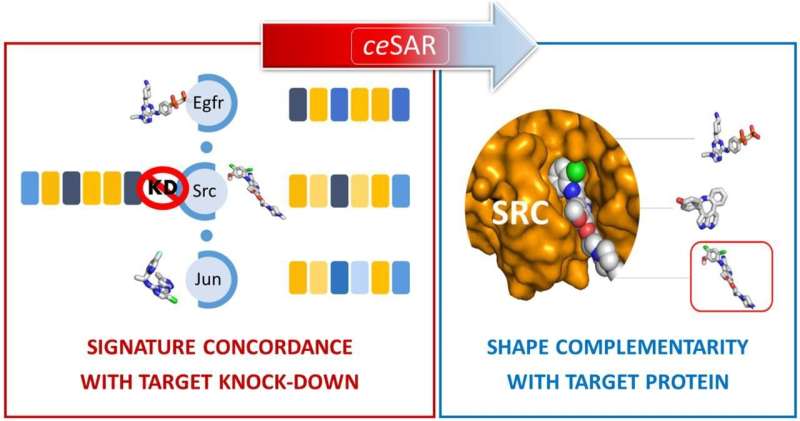This article has been reviewed according to Science X's editorial process and policies. Editors have highlighted the following attributes while ensuring the content's credibility:
fact-checked
peer-reviewed publication
trusted source
proofread
Study combines data and molecular simulations to accelerate drug discovery

Researchers from the University of Cincinnati College of Medicine and Cincinnati Children's Hospital have found a new method to increase both speed and success rates in drug discovery.
The study, published Aug. 30 in the journal Science Advances, offers renewed promise when it comes to discovering new drugs.
"The hope is we can speed up the timeline of drug discovery from years to months," said Alex Thorman, Ph.D., co-first author and a postdoctoral fellow in the Department of Environmental and Public Health Sciences in the College of Medicine.
Researchers combined two approaches for screening potential new drugs. First, they used a database from the Library of Integrated Network-based Cellular Signatures (LINCS) to screen tens of thousands of small molecules with potential therapeutic effects simultaneously. Then they combined the search with targeted docking simulations used to model the interaction between small molecules and their protein targets to find compounds of interest. That sped up the timing of the work from months to minutes—taking weeks of work required for initial screening down to an afternoon.
Thorman said this faster screening method for compounds that could become drugs accelerates the drug research process. But it's not only speed that is crucial.
He added that this newer approach is more efficient at identifying potentially effective compounds.
"And the accuracy will only improve, hopefully offering new hope to many people who have diseases with no known cure, including those with cancer," Thorman said.
It can also create more targeted treatment options in precision medicine, an innovative approach to tailoring disease prevention and treatment that takes into account differences in people's genes, environments and lifestyles.
"An accelerated drug discovery process also could be a game changer in the ability to respond to public health crises, such as the COVID-19 pandemic," said Thorman. "The timeline for developing effective drugs could be expedited."
More information: Alexander Thorman et al, Accelerating Drug Discovery and Repurposing by Combining Transcriptional Signature Connectivity with Docking, Science Advances (2024). DOI: 10.1126/sciadv.adj3010. www.science.org/doi/10.1126/sciadv.adj3010
Journal information: Science Advances
Provided by University of Cincinnati




















